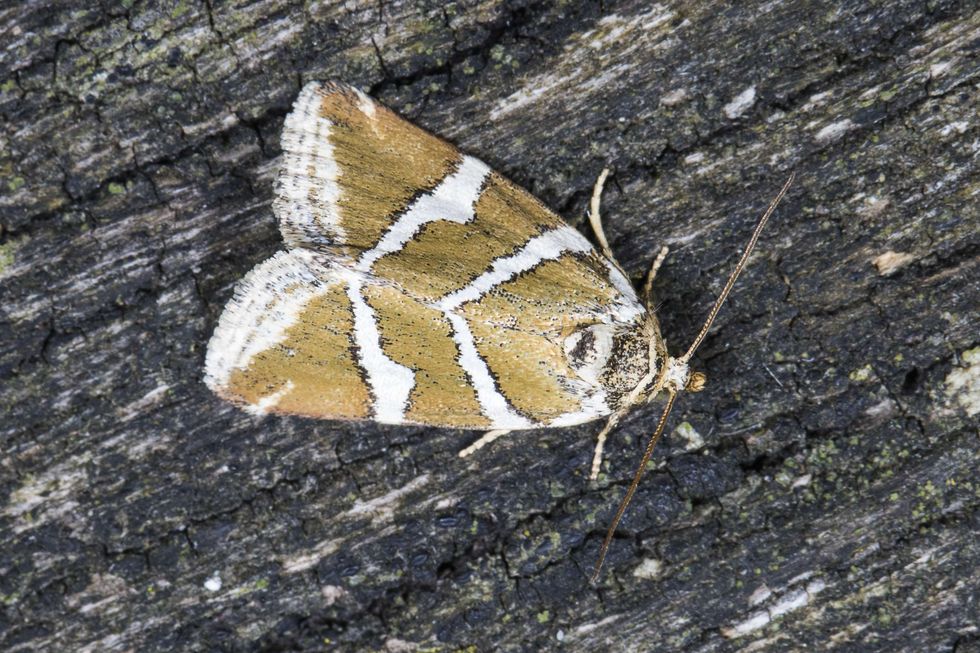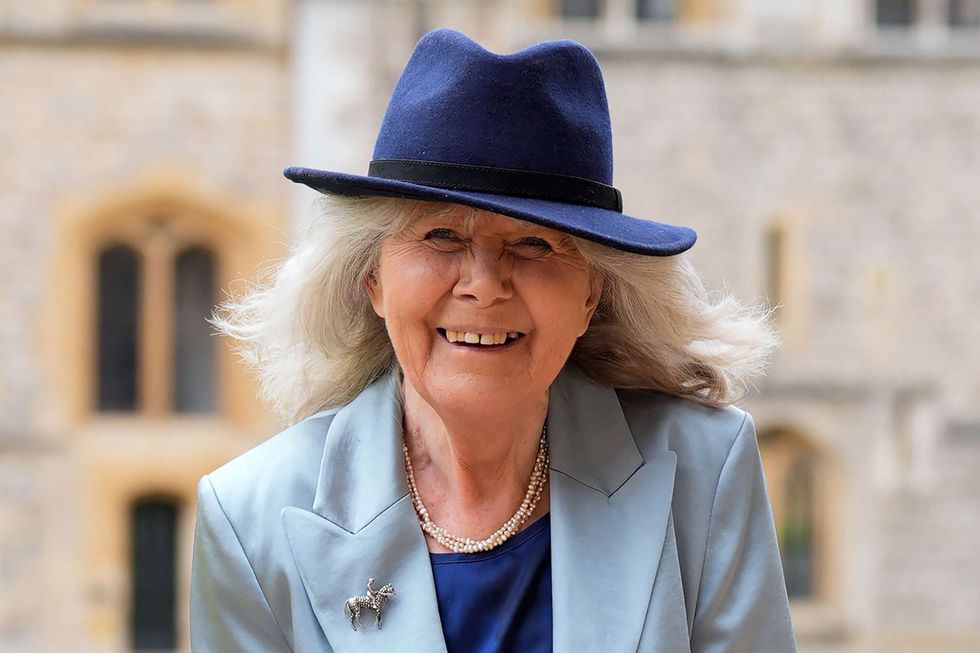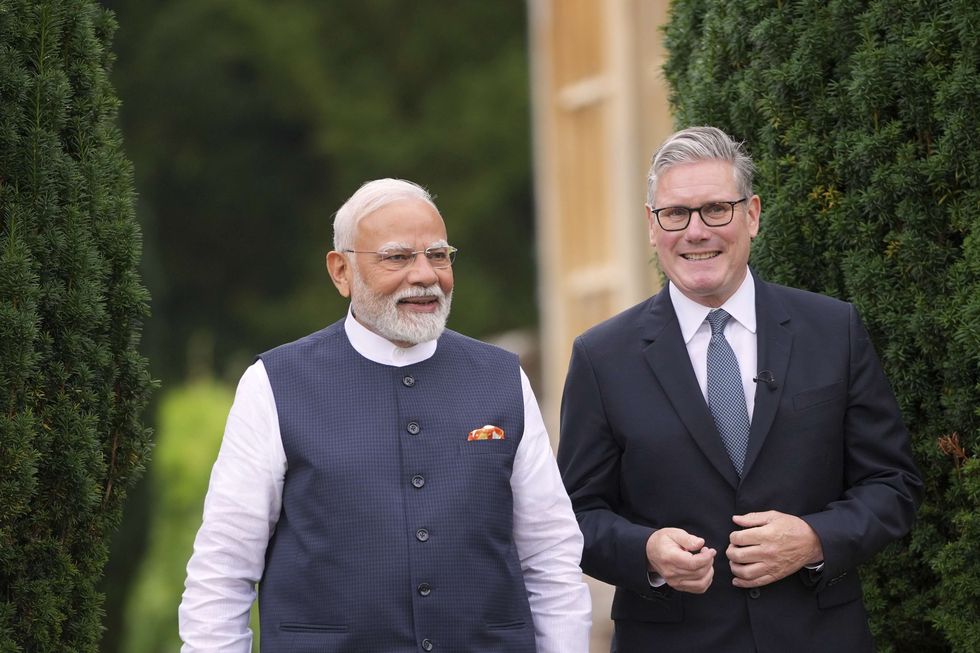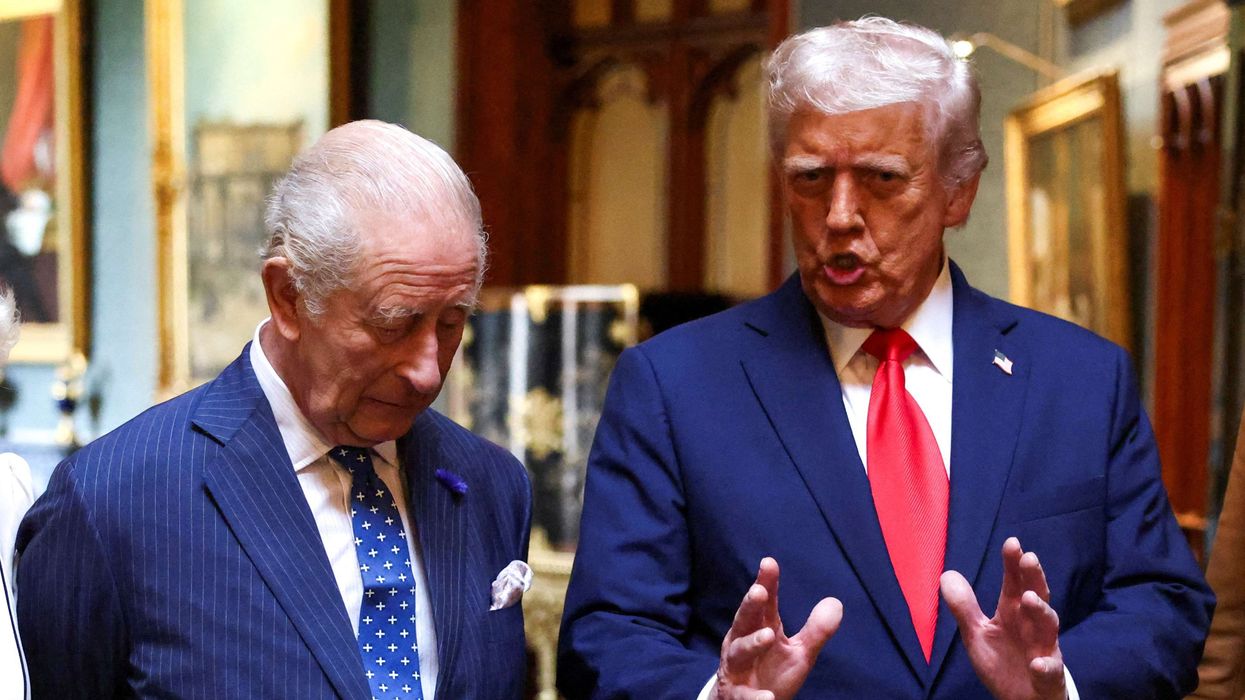Glorious autumn beckons
Sometimes, it is worth reminding ourselves just what a beautiful country Britain is. The National Trust tells us that after a sun-drench summer, followed by rain, we can be reasonably confident of a good autumn.
In between trying to get on to Eastern Eye’s Asian Rich List – the next annual edition is due out on November 21 – readers should go for a ramble in the English countryside. That would please Robert Jenrick.
“National Trust experts are tipping a long, colourful autumn display at many of the charity’s gardens, parklands and woodlands this year, thanks to plentiful sunshine and welcome late rain which put the brakes on a ‘false autumn’ caused by hot, dry conditions,” it says.
John Deakin, head of trees and woodland at the National Trust, said: “Autumn is such a pivotal moment in the calendar, shorter days combined with normally cooler temperatures and changes to rainfall patterns all contributing to the vivid sylvan scenes of ochres, oranges, red and yellows we associate and love with the season.
“In recent years with the climate becoming more unpredictable, it’s become even trickier to predict autumn colour. However, this year with the combination of reasonably widespread rainfall in September and a particularly settled spring we should hopefully see a prolonged period of trees moving into senescence – ie the gradual breakdown of chlorophyll in leaves which leads to the revealing of other pigments that give leaves their autumn colour, as well as a bounty of nuts and berries.”

Meanwhile, Wicken Fen in Cambridgeshire, cared for by the National Trust, has recorded its 10,000th species of wildlife – becoming, experts believe, the first known UK site of its kind to do so.
In 1999, the National Trust decided to compile a central checklist of biodiversity as part of its Wicken Fen Vision – a century-long plan to vastly increase the size of the reserve. With the help of professional and amateur naturalists, the Trust recorded a total of 7,421 species.
Since then, the site has more than tripled in size, from 225 hectares to 820 hectares, an expansion which is credited with boosting the area’s abundance and diversity of wildlife.
Incidentally, I found a moth on my window which puzzled me. It looked very much like a silver barred moth, one of the species in Wicken Fen. According to the National Trust, “this very rare moth is only found at three other places in the UK, the larvae feed on just two specific species of grass”. Plus on my window in London.

Parminder turns 50
The actress Parminder Nagra must now be part of the great and the good because The Times noted she turned 50 last Sunday (5).
The paper said she was on ER from 2003-2009. She played Dr Neela Rasgotra in the NBC medical drama.
Most viewers will remember her from Gurinder Chadha’s hugely enjoyable 2002 film, Bend It Like Beckham, in which she played Jess Bhamra, who wanted to play football rather than learn to cook aloo gobi.
But I can go back a bit further. We once chatted when we caught a bus in north London. That was in the days when she was yet to become an international celebrity. Parminder Kaur Nagra (“Mindi” to friends) is a Leicester girl, born there to a Sikh immigrant family on October 5, 1975, but she is now settled in Los Angeles.
I have found my notes from 1997, when she was cast as a little boy in the Tamasha Theatre Company’s memorable production of A Tainted Dawn. That year marked the 50th anniversary of the Partition of India. The play was based on Bhisham Sahni’s Pali, a poignant story set in the time of India’s Partition about a small Hindu boy who gets accidentally left behind by his Hindu parents, who return years later to reclaim him from a Muslim couple who have lovingly brought up “Altaf” as their own child.
When he is taken back to India, the religious elders want to “cleanse him” and make him Hindu again. The traumatised boy sits down and shocks all around him by offering namaz.
I still think that A Tainted Dawn is the best thing she has done.

Jilly Cooper’s England
Jilly Cooper, who set her “bonkbusters” among the countryside set, was the kind of Englishwoman – rather like Joanna Lumley – who appealed to a wide section of society, but especially to readers of papers like The Daily Telegraph.
Warm tributes have been paid to her after she died, aged 88 last Sunday (5), following a fall.
In May 2023, when Rishi Sunak was prime minister, it was revealed he was among her fans.
The other day I came across one of Jilly’s Sunday Times columns, which my wife had snipped out and kept in a book. Shortly after we married, I took my wife to Lord’s for the first time. What we didn’t realise was that Jilly was sitting right behind us and picked up snippets of our conversation, and, like the entertaining writer that she was, used them totally out of context.
“He’s got a fine leg,” I said to my wife.
She asked: “Why are they cheering?”
“Oh, because he’s taken his sweater.”
Maybe British Asian readers could read some of Jilly’s novels, so that they can have a better understanding of Robert Jenrick’s England.
Starmer’s India trip
It’s been a while since a labour leader has visited India. Tony Blair did so in 2002, when he was prime minister. Sir Keir Starmer’s trip on Wednesday-Thursday (8-9) is crucial for both countries, but especially for the UK. It has the chance of enmeshing its economy more closely with a rising India. Starmer will sense the mood is very uplifting. His major foreign policy success was concluding the Free Trade Agreement with India, which could make a real difference to the British economy.
Unbanning Palestine Action
It’s a problem for the government banning Palestine Action, when Jewish people have joined others in carrying posters saying, “I oppose genocide. I support Palestine Action.”
Defend Our Juries member, Zoe Cohen, told the BBC that as a Jewish person she is “grieving after the appalling synagogue attack”, but also “grieving for the hundreds of thousands of Palestinians who have been murdered, displaced and starved in Gaza”.
She added: “I think it’s possible for us to be compassionate and open our hearts to victims of multiple atrocities at one time.”
Police have been arresting blind and disabled people. Quite a few I suspect would be readers of the Daily Telegraph and the Daily Mail.
Palestine Action is a symptom of the problem. What is needed urgently is an end to the war in Gaza.

Birmingham burning?
The shadow justice secretary, Robert Jenrick, who probably thinks there aren’t enough white faces at the top of the Tory party, told a dinner in March: “I went to Handsworth in Birmingham the other day to do a video on litter, and it was absolutely appalling. It’s as close as I’ve come to a slum in this country. But the other thing I noticed there was that it was one of the worst integrated places I’ve ever been to. In fact, in the hour and a half I was filming news there I didn’t see another white face. That’s not the kind of country I want to live in. I want to live in a country where people are properly integrated. It’s not about the colour of your skin or your faith, of course it isn’t. But I want people to be living alongside each other, not parallel lives. That’s not the right way we want to live as a country.”
His is a lovely idea, getting more black people to be his neighbours in idyllic Herefordshire, where he has a manor house.




